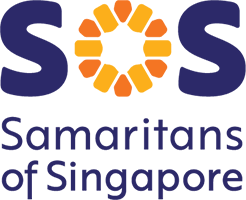Suicide is a major public and mental health concern in communities around the world. In Singapore, there is at least ONE suicide a day. For every suicide death, there is an estimate of 20-25 suicide attempts (WHO). Suicide is the leading cause of death for young persons aged 10-29 in Singapore.
As Social Service practitioners, we are likely to encounter suicide situations in our daily work. Practitioners need to acquire critical competencies to handle suicide crisis ethically and professionally. The SOS ‘Suicide Intervention Skills Workshop’ (SISW) maps the learning outcomes according to the ‘Core Competency Model’ (CCM) (2013; 2019) suicide intervention training framework that outlines evidence-based skills necessary for effective suicide. Drawing on local data, real-life scenarios and stakeholders’ input, this training seeks to equip learners with up-to-date knowledge and skills contextualised for local applications.




